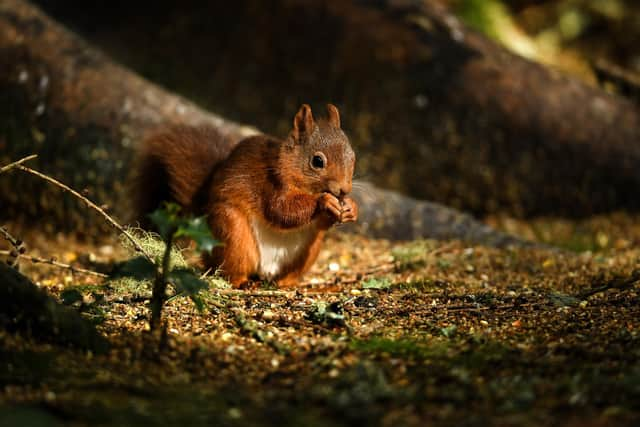Protecting declining red squirrel population from grey squirrel threat: Rebecca Pow
Once one has engaged with red squirrels, one becomes passionate about saving them.
We must remember that grey squirrels are often people’s only interaction with nature and wildlife, particularly in urban areas, so we need to tread with care over the subject of controlling them.
Advertisement
Hide AdAdvertisement
Hide AdIt is clear that they are an invasive, non-native species to our islands, introduced into this country only in the late 19th Century and becoming quickly established across Great Britain. We are only too aware now of the creature’s negative impacts on wildlife and habitats.


Expanding grey squirrel populations represents a huge threat to the reds. We have an estimated 2.7 million grey squirrels in Great Britain and they are outcompeting the poor little red squirrels for food. They transmit the awful squirrel pox, which has been touched on, which is fatal to our native species.
As a result, grey squirrels have displaced red squirrels throughout much of Great Britain, leading to fragmentation of their populations. We believe there are currently fewer than 39,000 red squirrels in England and 287,000 in Great Britain.
The issue is about more than that, however. Grey squirrels are not only having an impact on the populations of red squirrels; they are also having a huge impact on trees, the timber industry and the deciduous, ornamental forests. That is because they strip the bark, and managing woodlands and trying to deal with that is a real challenge.
Advertisement
Hide AdAdvertisement
Hide AdA recent report by the Royal Forestry Society suggested that the cost of the damage is about £37 million a year in lost timber value in England and Wales. The timber industry is an important industry that we want to expand. Trees are also important for carbon capture and climate mitigation, but there is also the cost of replacing the trees that squirrels have killed. The World Bank has forecast that the global demand for timber will quadruple by 2050 and that includes in the UK.
Damage from grey squirrels can also act as a disincentive to planting trees because of the costs of coping with the animals, and that is currently blocking the growth of the domestic timber supply chain. That really needs to be tackled.
Grey squirrels have an impact on our coniferous forests, which largely supply our timber, but they also have an impact on deciduous forests as well. Once a tree—beech, for example—is destroyed, fungal diseases can take hold, which is another threat to the trees. Clearly, we have to do something about that.
In the light of the significant environmental damage inflicted by grey squirrels, they have been listed as a species of special concern under the Invasive Alien Species (Enforcement and Permitting) Order 2019 which is an important tool in managing the impact of that invasive species. A refreshed GB invasive non-native species strategy was published this year, which sets out the challenges and what we need to do. It supports other national strategies and provides an integrated approach across Great Britain.
Advertisement
Hide AdAdvertisement
Hide AdWe have a grey squirrel action plan, championed by DEFRA, which sets out our actions to manage the squirrels in England that will be published shortly. It is a refreshed five-year plan that will concentrate on advice and incentives for land managers, more collaboration and partnerships, and funding and research as appropriate.
We are committed to controlling those pernicious grey squirrels.
Rebecca Pow is Environment Minister. This is an edited version of a recent Westminster Hall speech.